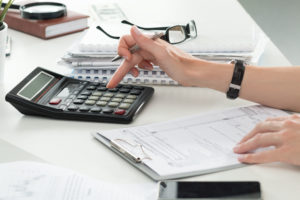How to get ahead with your Self Assessment

Your 2019-2020 personal tax return may be the last thing on your mind at the moment, but it could be the best opportunity to make a start and get ahead of the game. If you are not working or receiving as much income as you may have expected due to Coronavirus, it is more important than ever to have your tax return completed as early as possible and gain an extra sense of visibility over your personal finances. But where to start?
Before you begin:
Make sure any outstanding payments to HMRC have been paid, or set up a payment plan if you can’t pay the full amount in one go. Double-check with your accountant if you make any payments after the deadlines, as there may be penalty charges or interest added onto the amounts due.
If you have never needed to submit a tax return before, but have been self-employed during the 2019-20 tax year, you will need to register for self-employment before you complete your first self-assessment. HMRC require you to fill out a short online form detailing the nature of your business and a few other details. Once this has been submitted, you will receive confirmation along with a Unique Tax Reference (UTR), which you will need to keep handy in order to submit your tax returns.
Banish the shoebox!
Thankfully, the days of storing your receipts, bank statements and invoices in shoeboxes are long-gone. There are many types of software packages and apps available now, which make it easy to upload, store and manage your expenses. This keeps all of your financial information in one place, and available to you at any time, should you need access. One of the most popular apps used is ReceiptBank, which allows you to upload, categorise, and automate all of your expenses and invoices. We are currently offering the use of ReceiptBank without charge for all of our clients to process your 2019-20 tax return.
Once all of your information is in one place, you’re ready to send it over to your accountant. We can then process your tax return and let you know how much tax you will need to pay (or if you have overpaid), giving you clarity over your budget, so you can get back to doing what you do best!
So, to recap:
- Pay any outstanding amounts to HMRC (or set up a payment plan)
- Register yourself as self-employed and make a note of your UTR
- Use an app such as ReceiptBank to track and store your expenses
- Send them to your accountant!
There – now that wasn’t too scary, was it?
Ten Forward Finance are ready to start processing your 2019-20 tax return. Get in touch with us now to get ahead and gain visibility over your personal finances as soon as possible!






